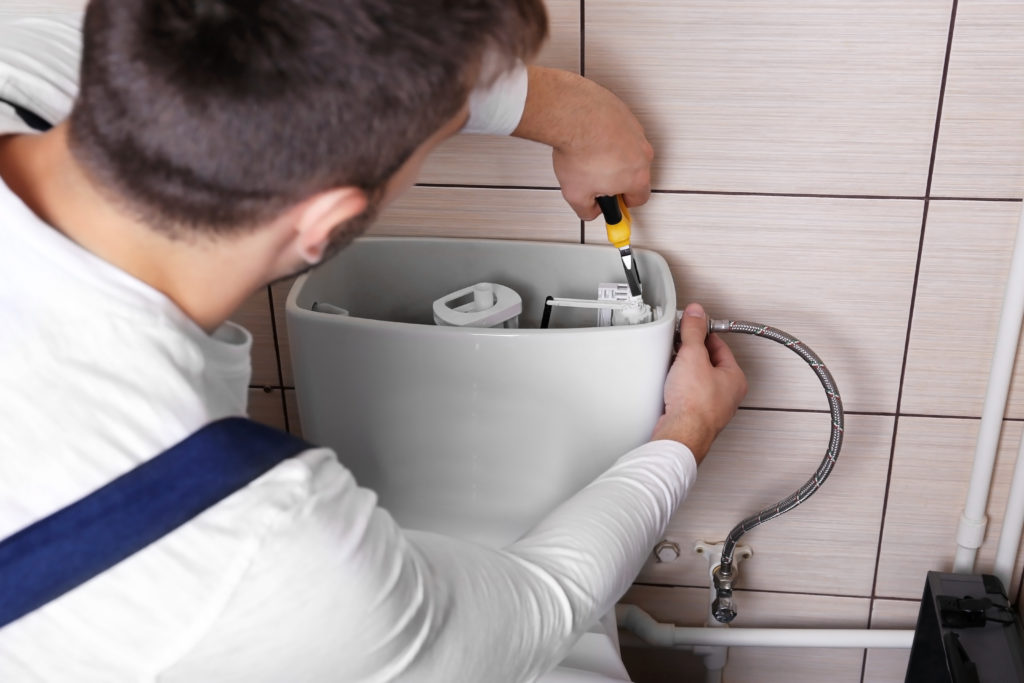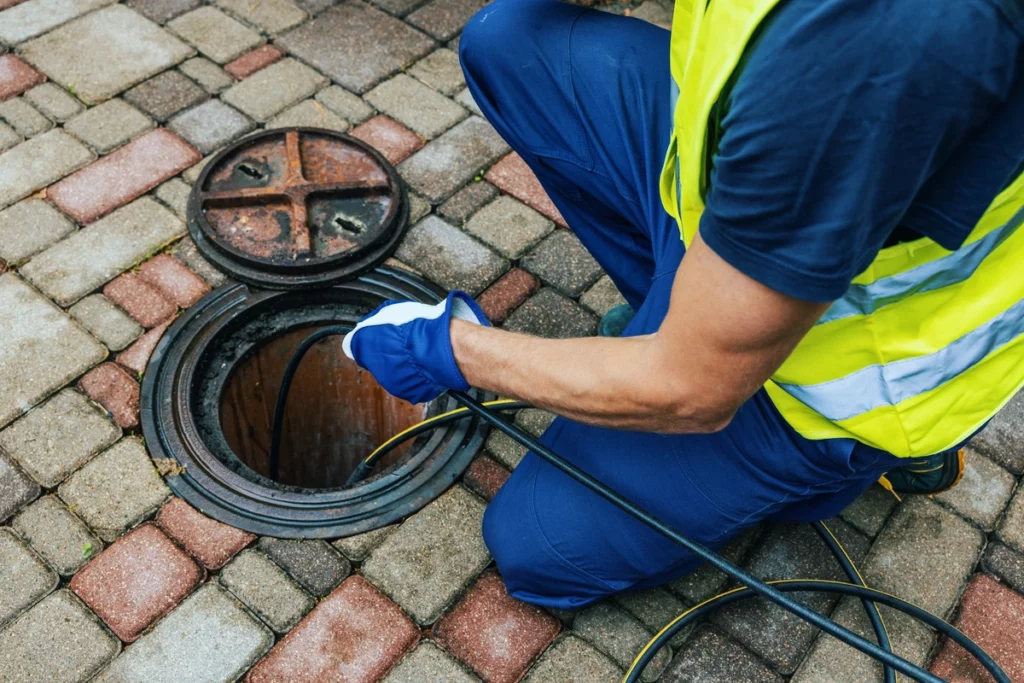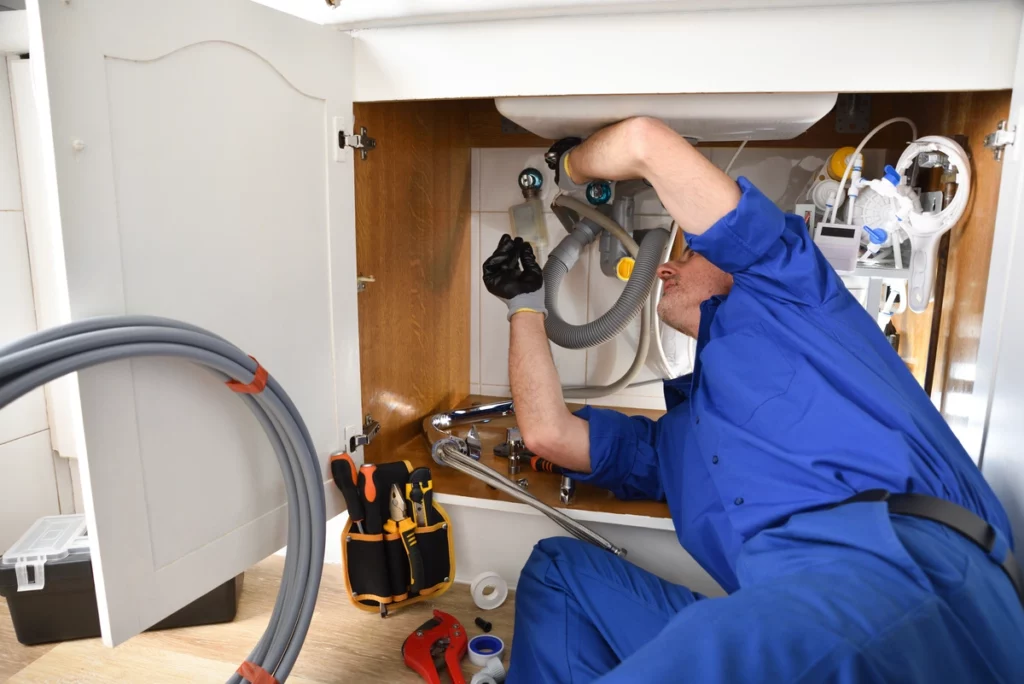When you own a home, you want to be able to maintain it and keep it nice for years to come. But chances are you aren’t a plumber or a contractor, so it’s important to know what you can do as a homeowner to keep your house in working order, without causing new ones. We’re going through a few plumbing tips that every homeowner should know to avoid critical plumbing issues down the road.
19 Useful Plumbing Tips For You To Be Aware Of
1. Locate Your Shut-Off Valves
We hope you are never in a situation where you need to utilize your home’s shut-off valve quickly. But if tragedy strikes, you’re going to want to know exactly where and how to shut off your water—knowing where your shut-off valve is also helpful for any small routine maintenance you do on your plumbing.
Even if you are installing a new faucet head in the bathroom, you’ll want to shut off the water because the pressure can be affected when you remove the old hardware. Make sure everyone able to use the shut-off valve, knows where and how to turn it off as well. You’ll be glad you do!
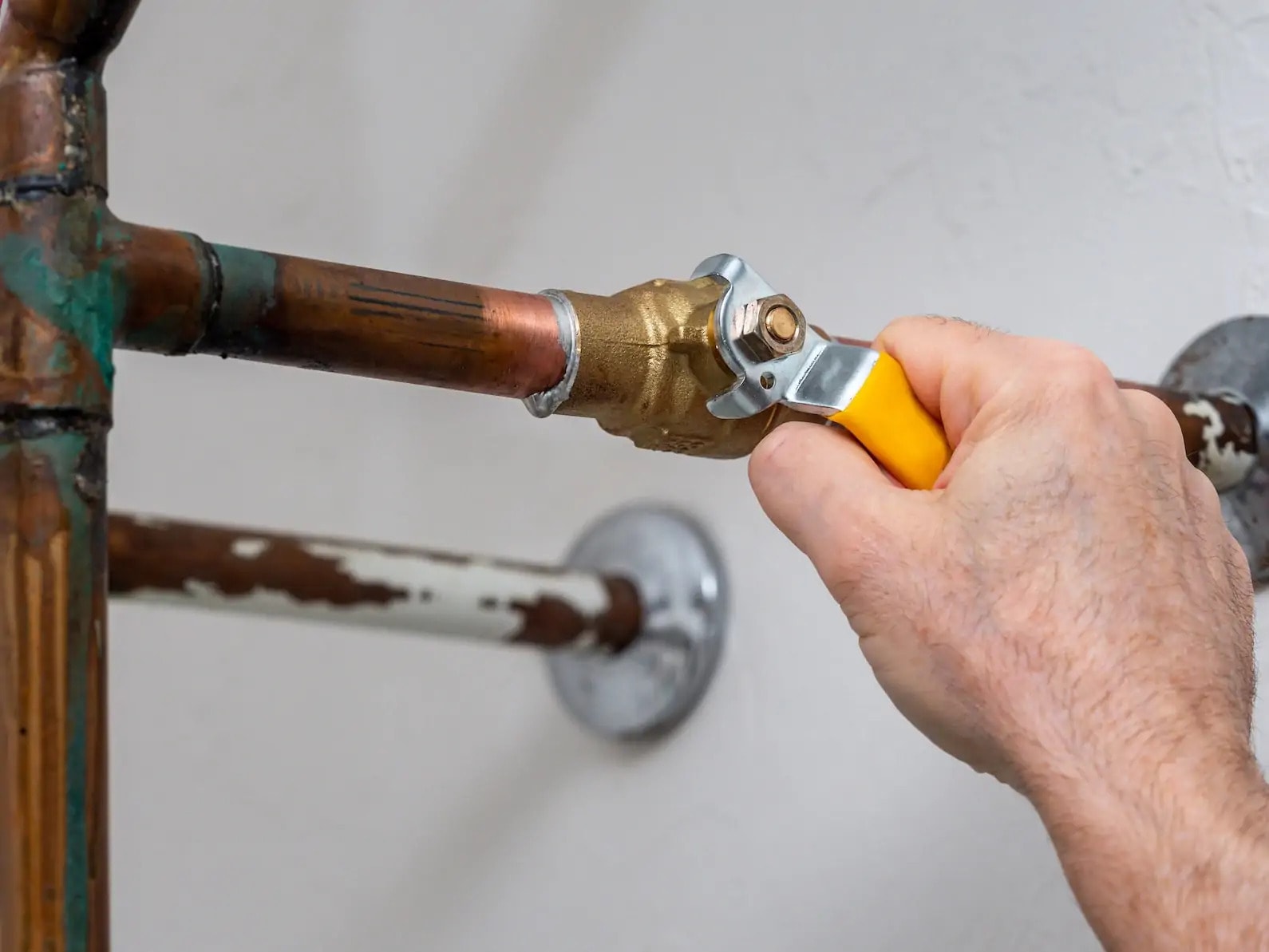
2. Don’t Flush Non-Flushable Items
The only thing that should get flushed down your toilet is toilet paper. Even some “flushable” wipes, when used in excess, cannot break down and can cause large clogs in your pipes. So use them sparingly, or confirm they are actually safe to flush. Don’t flush any regular baby wipes.
Don’t put q-tips, kleenex, paper towels, or other garbage down there. Putting a small garbage can right next to the toilet can help deter you from tossing things that aren’t meant to be flushed in the toilet.
3. Regularly Check for Leaks
Every once and awhile, make sure you look for leaks under sinks and in your basement. On the day that you do your deep clean, simply run the water from each faucet for a bit, then check underneath the cabinets and run to the basement and look for any signs of leaks.
If you’ve recently had plumbing work done, it’s a good idea to check for leaks shortly after. After a repair and regular use of your pipes, you can determine if the seal needs to be tightened or anything, and you can do it or have the plumber come to tighten the fittings.
4. Also, Don’t Ignore a Leak
If you see your bathroom or kitchen sink is dripping, even a little bit, you shouldn’t ignore it. Even the tiniest drip can be wasting tons of water and lead to more significant issues down the road. A dripping sink can waste up to 8 gallons of water per day if left unresolved. Your faucets are also meant to hold back pressurized water until you turn the faucet, and without that barrier, pressure can build up behind it, causing leaks in your pipes.
5. Hold on to Some Plumber’s Tape
It would help if you had some plumber’s tape on hand to take care of any small leaks or replace any worn plumber’s tape. This thick white tape is used to wrap around the threads of your pipe fittings to keep them from leaking. They can always use a refresher and can also help secure a small leak while you ware waiting on a plumber or a replacement part.
6. Invest in a Wet Vac
A wet vac is a vacuum that can suck up water or other liquids. It’s nice to have if you ever find yourself with a flooded basement or failed sump pump. It also can work to get stubborn clogs from the toilet or drains—like when a child throws small toys or other TV remotes down the toilet. Isn’t that fun?
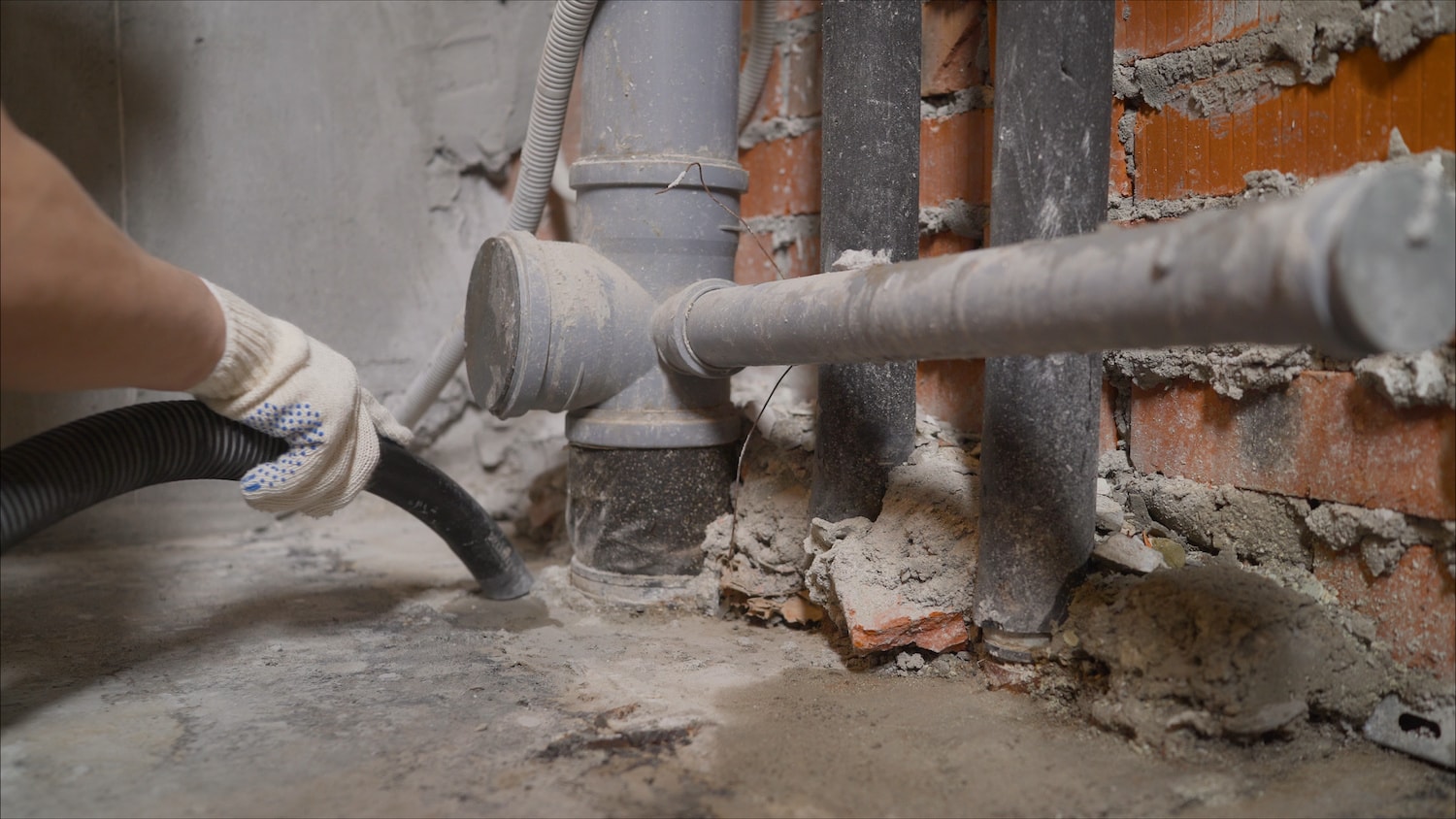
7. Don’t Over-tighten Your Fittings
There’s a saying that homeowners should remember that is, “hand tight is just right.” One of the biggest mistakes homeowners make is over tightening their pipe fittings. Tightening them too far can strip the screws and bolts, and you will find yourself with a leaky fitting sooner than later.
8. Don’t Put Garbage Down the Drain
This may seem obvious, but we might all be guilty of doing this. If you ever drop a small piece of a plastic wrapper or a piece of straw or something in the sink, you should always pick it out and throw it away. Don’t be lazy and flush the little plastic bit down the drain; it won’t disintegrate, and it can get stuck and catch things passing by, causing a big clog.
9. Routinely Check Your Sump Pump’s Battery
Your sump pump is what protects your basement from flooding in sub-level areas of your home. Rainwater and snowmelt are the main things that will increase water levels. Your sump pump ensures that the rise in water does not infiltrate your basement floor, but instead pumps it back out. Main times sump pumps can fail during large storms when you need them most. So it’s essential to make sure your sump pump and back-up battery is functioning and will kick-on when you need it.
10. Purchase Flood Alarms
Like the sump pump, a flood alarm can help with basement prevention by alerting you at the first sign of water. Whether your water heater is leaking or your sump pump has failed, a flood alarm is a small device you can put near your basement drain or lowest point on the basement floor. It is sensitive to moisture, and if water flows over its sensor, it will beep and alert you that you have water in the basement. More recent versions can connect to a mobile app so you will always be alerted of a flood, even when away from home.
11. Be Mindful of Changes in Water Pressure
Pay attention to any changes in your water pressure, whether from the faucets in your bathroom, kitchen, or showerhead. Changes in water pressure can be a sign of a clog or leaky pipe. It can also be a sign that your shut-off valve is slightly closed or loose. Water pressure can be one of the first signs you notice in your home.
12. Don’t Clog Your Bathtub Drain
We all know that hair clogs the drain in the shower or bathtub. To avoid this from happening, make sure you get a hair trap that goes over the drain. These can sit near the top, or a drain mushroom goes down into the drain a bit to catch even more. Even if you occasionally snake the drain a bit and run a vinegar, baking soda mixture down the drain, you should be able to prevent large clogs in the tub drain.
13. Know How to Fix a Running Toilet
We’ve probably all experienced a toilet that is having trouble flushing, or one that just keeps running. A running toilet can waste hundreds of gallons of water but is an incredibly easy fix. For the most part, a running toilet can be fixed by even the most amateur plumber.
Open the back of the toilet, and you can evaluate the flapper (which is what lets water in and out of the toilet), the chain, and the level that raise and lower the flapper. If any of these are loose or broken, tighten the pieces or replace them. Call a plumber if your small fix does not resolve the issue.
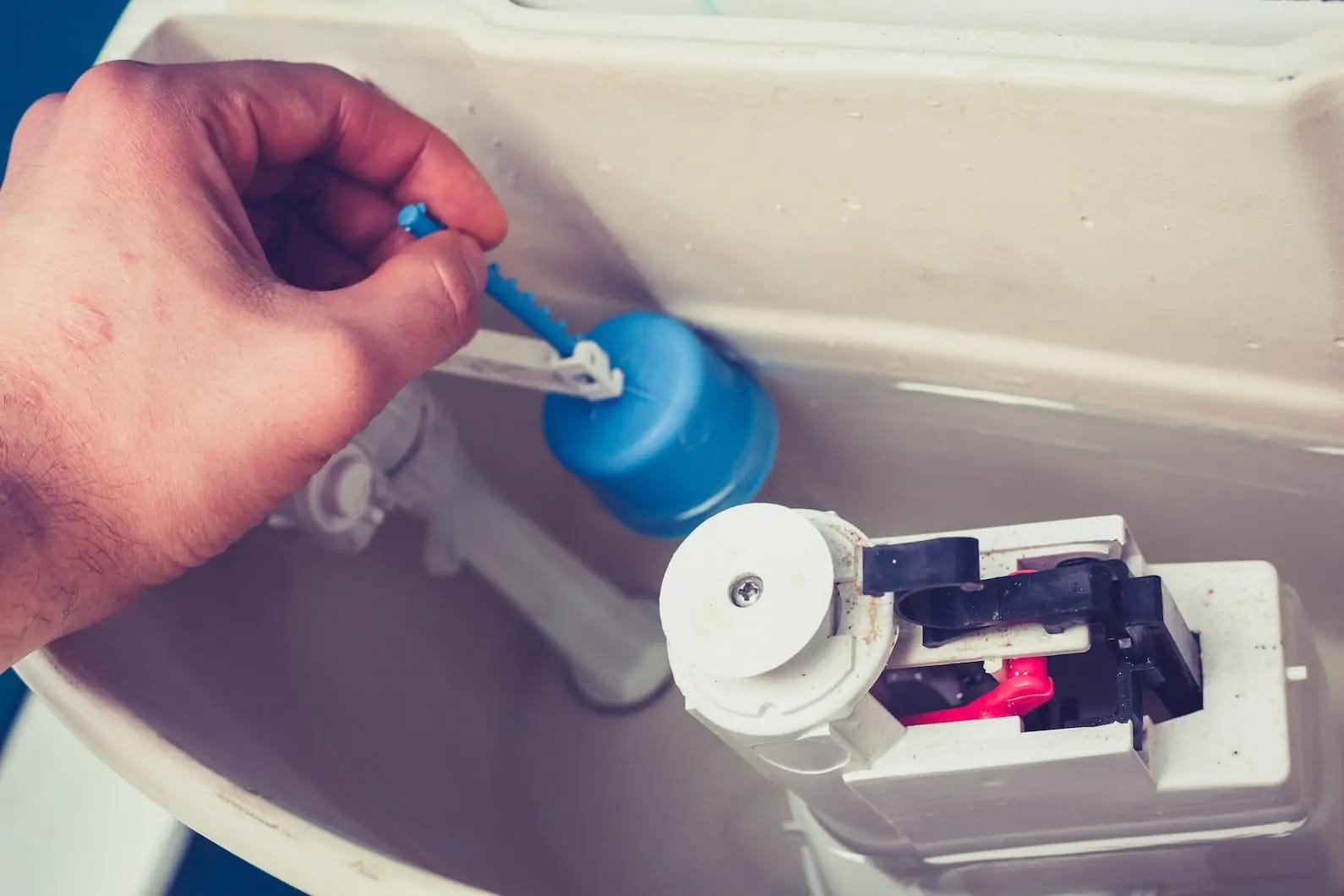
14. Invest in a High-Quality Plunger
Yes, there are different types of plungers for different kinds of clogs. Make sure you get the right one for the job. Some create more suction and work best for drains, and others are great for toilets. You don’t want to make too much suction in some areas, causing more damage.
Ask your local hardware store clerk if you need help finding the right tool for the job. Plus, just having one on hand is a no brainer for homeowners. The last thing you want is to have to call a plumber over a small clog the plunger could handle.
15. Maintain or Replace Your Water Heater
Your water heater should only last about 8-12 years, depending on your water quality and how much maintenance you do. Water heaters can fill up with sediment and require cleaning and other maintenance over time. Make sure you take good care of it. They can last far beyond their expected lifespan, especially if you do proper, regular maintenance and utilize a whole house water filtration system before your water heater.
16. Insulate Your Pipes
Insulating your pipes in the basement and exterior walls of your home and help prevent frozen and burst pipes. In the Midwest, we face frigid temperatures and large fluctuations in temperature in our winter months. These temperatures can lead to frozen pipes that build up pressure and “burst,” causing leaking or other damage to your home.
17. Do Away with Harsh Cleaning Chemicals
Using harsh chemicals like bleach and store-bought drain products is awful for your pipes. They can cause build-up and also wear away at certain materials. Use all-natural products when you clean your toilet bowl or sinks, and running a simple vinegar and baking soda wash followed by piping hot water, can alleviate many clogs and wash away build-up.
18. Don’t Use Your Garbage Disposal for Everything
Garbage disposals are nice to have for small little jobs, busting up pieces of food after we do the dishes or post-dinner. But they can’t handle everything. Things like sticky pasta and oats, potato peels, fruit pits, coffee grounds, and other non-food items like the stickers on your fruit peels are not exactly safe to put down there.
Your garbage can and your compost should be where you put the majority of your food waste. You don’t want to risk clogging your disposal because it can be a mess to fix and stink up your kitchen.
19. Make a Regular Maintenance Schedule
Most importantly, make sure you put some of these preventative measures on a regular maintenance schedule that you are your family do once every other month. It’s vital to catch disasters before they happen. So if you do a deep clean of the house every couple of months, make sure you check your plumbing at the same time. You’ll be better off for it!
Get In Touch With the Plumbing Experts at AJ Alberts!
We hope these tips help you manage your home’s plumbing to the best of your abilities. You can also purchase a maintenance plan from AJ Alberts at the cost of just $12/month. A customer maintenance service plan includes a whole house plumbing inspection, a water hardness test, priority, and discounts on future repairs. Save yourself the pain of expensive plumbing repairs with a maintenance plan. Contact us today for more information!


